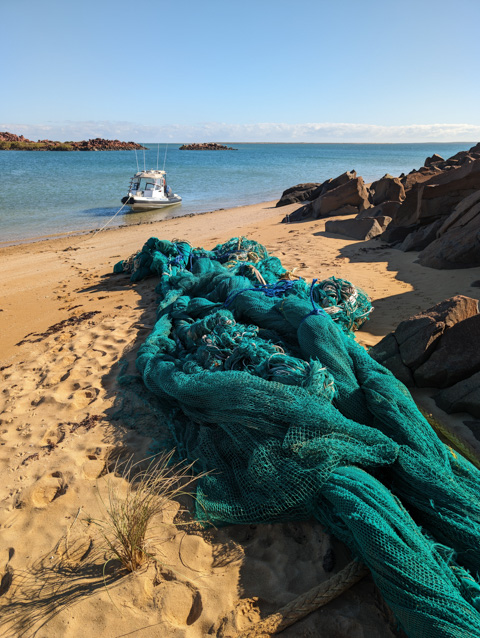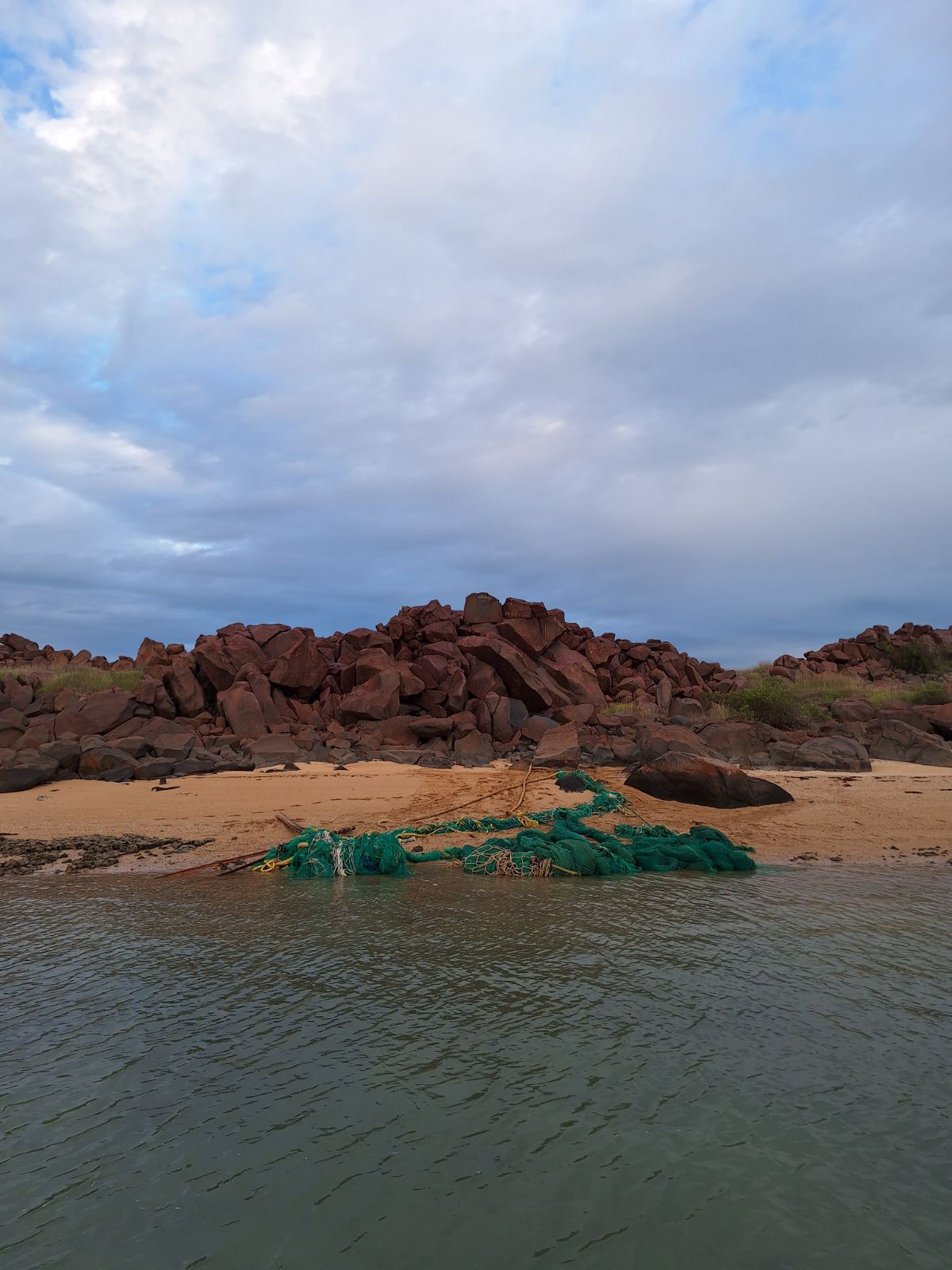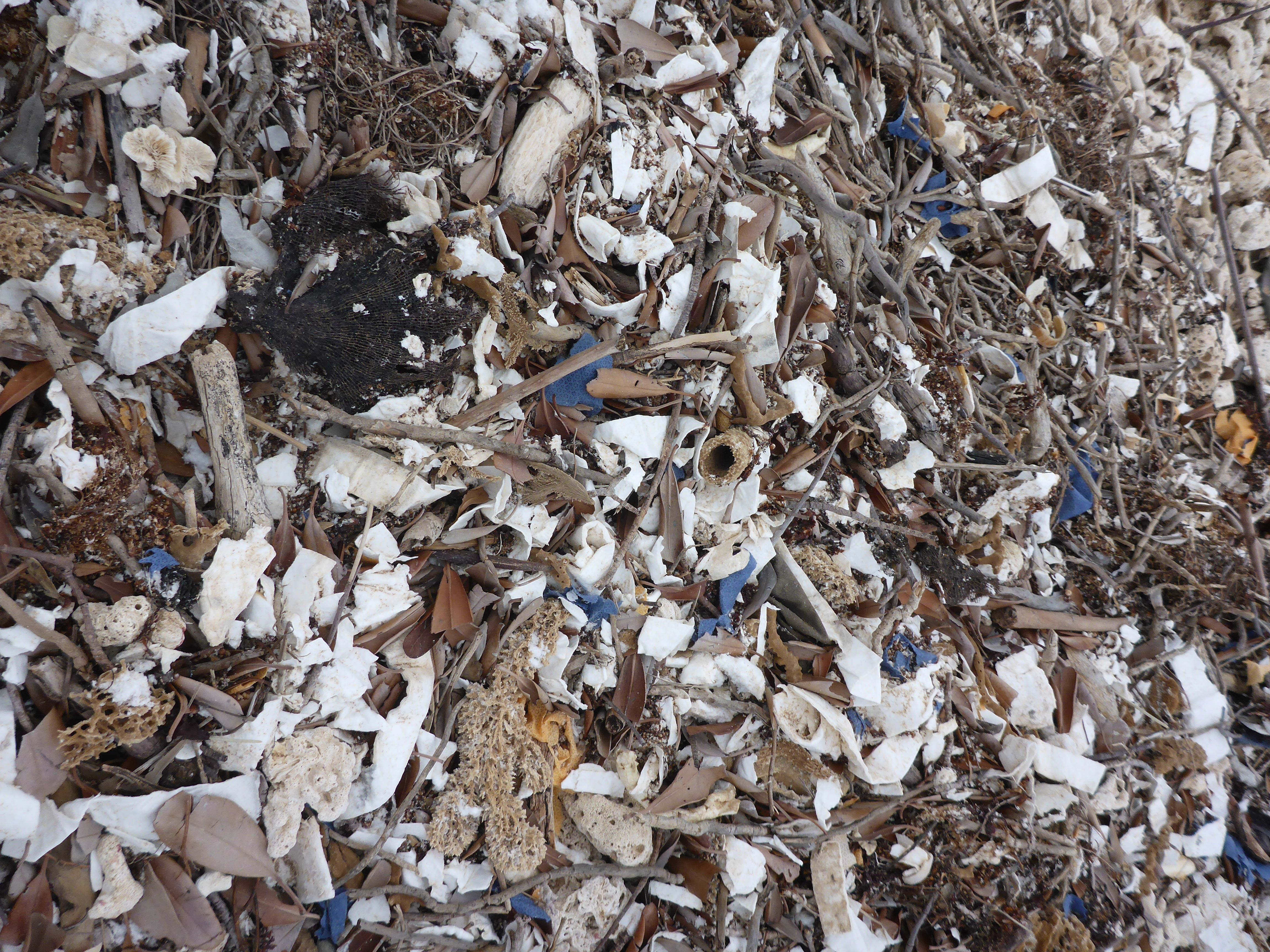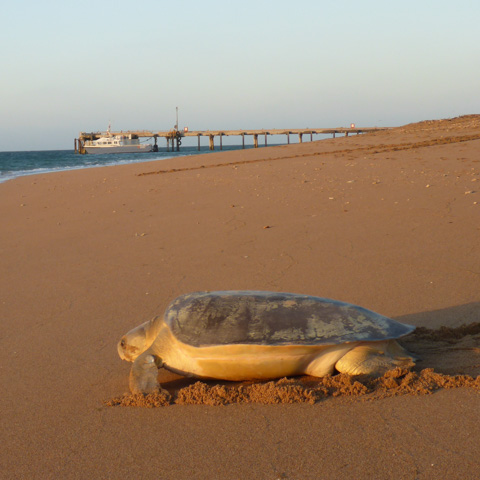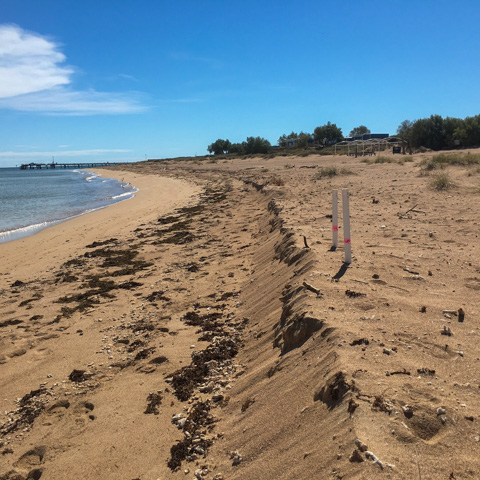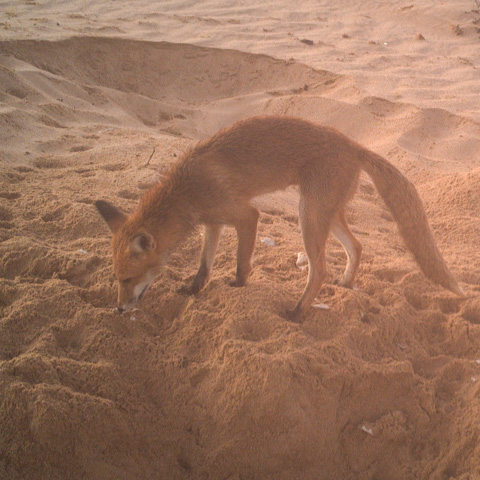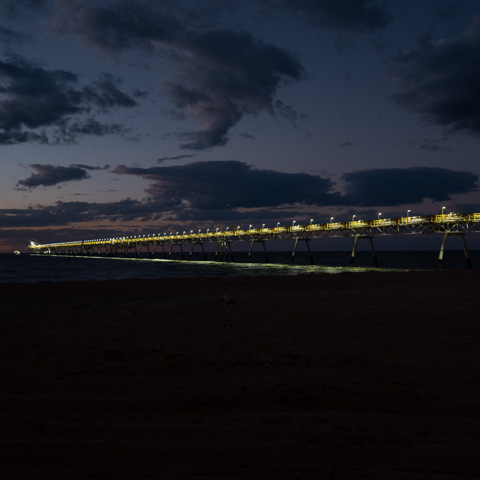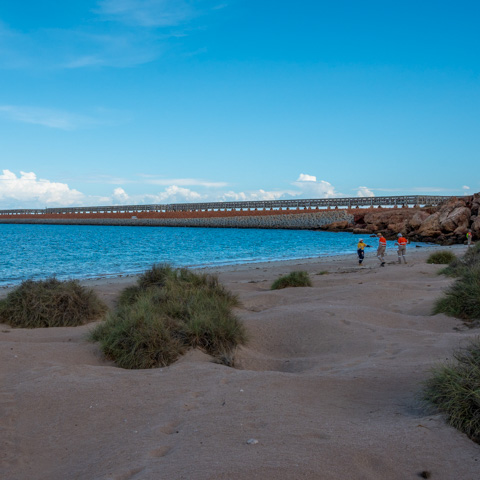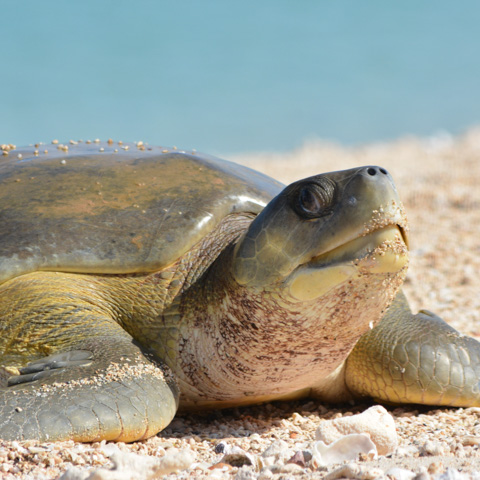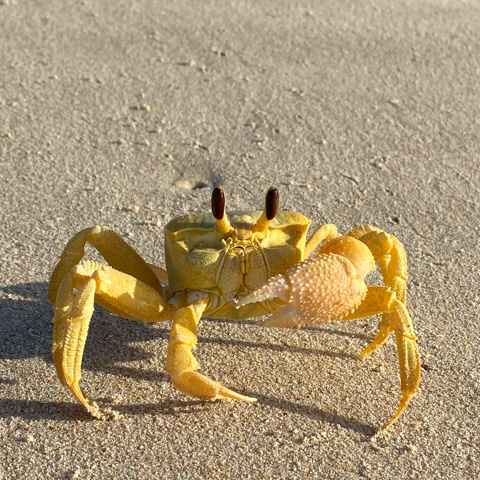The impacts of marine debris on turtles
Marine debris is a term that often refers to human derived items such as microplastics, discarded fishing nets and wire, ship materials disposed of at sea, and plastic bags and bottles. Marine debris poses a threat to flatback turtles in the water through ingestion and entanglement, while excessive debris on land can make it difficult for females to nest.
What we know so far
The ingestion of plastic during marine turtle early life stages (post-hatchling and juveniles) is an important threat to understand given the prevalence of marine debris and fragility of young turtles. Research has investigated the amount of plastic ingested, types of plastics ingested and if marine turtles are more likely to ingest specific colours or types of plastics. Marine turtles, including flatbacks, had high plastic ingestion rates during this life stage. Young turtles are particularly exposed as they have evolved to eat floating material.
Examples of marine debris in the Pilbara region
Research highlights
How much plastic do marine turtles ingest during their early life stages, which types of plastic are they ingesting, and are they more likely to consume particular types or colours? Researchers have assessed the extent of plastic ingestion of five species of marine turtle in Australia using stranded and bycaught specimens in both Western Australia (Indian Ocean) and Queensland (Pacific Ocean). Incidences of plastic ingestion were found in both states for green, loggerhead, olive ridley and flatback turtles.
High incidences of debris ingestion, predominantly of hard fragments, were recorded in the Pacific Ocean. There was a lower incidence in the Indian Ocean, with ingestion of mostly filamentous plastics. Across both sites clear coloured plastic was ingested most often, followed by white for the Pacific Ocean and green and blue for Indian Ocean. The polymers most commonly ingested across both sites were polyethylene and polypropylene. The high occurrence of plastic ingestion in marine turtle early life stages is a potential “evolutionary trap” as small marine turtles undertake their early years of development in polluted oceans and have evolved to eat floating material.
This research was led by the University of Exeter, in collaboration with DBCA/NWSFTCP, Deakin University, James Cook University, Department of Environment and Science QLD, Plymouth Marine Laboratory, and Murdoch University.
Publications
Researchers

Dr Scott Whiting
Principal Research Scientist

Dr Tony Tucker
Senior Research Scientist





